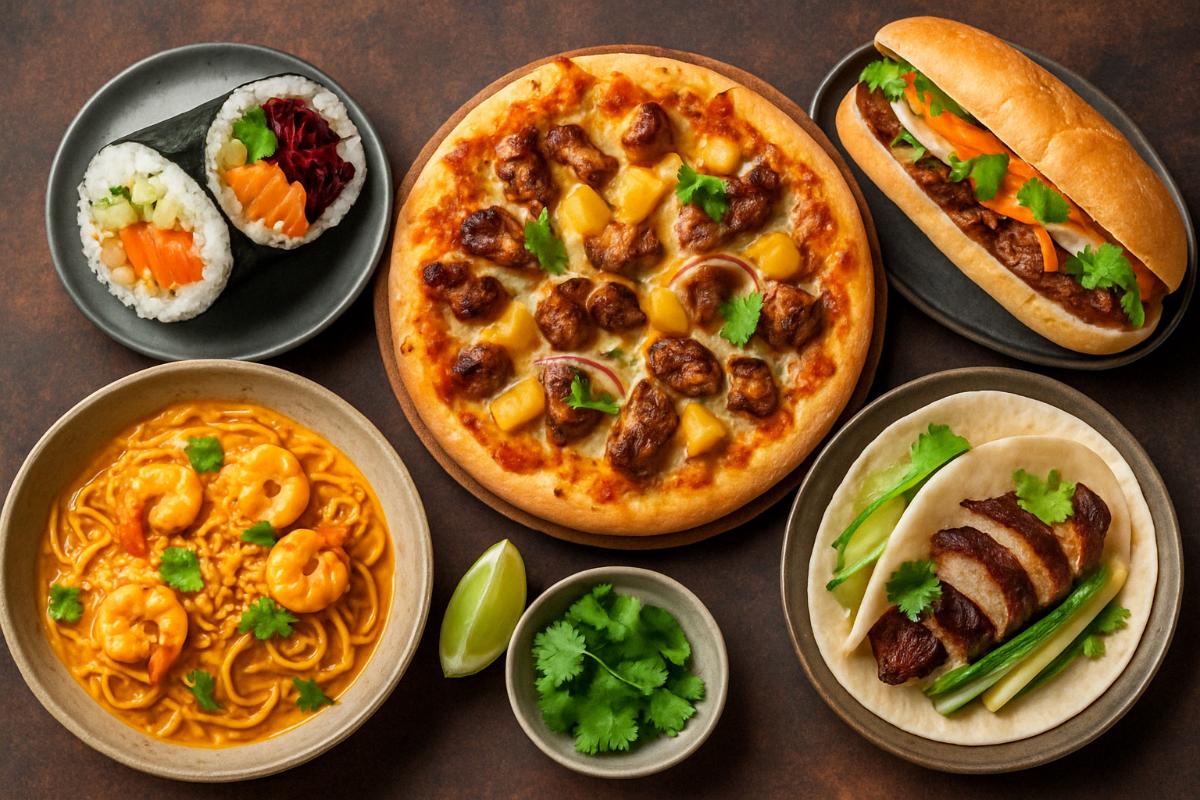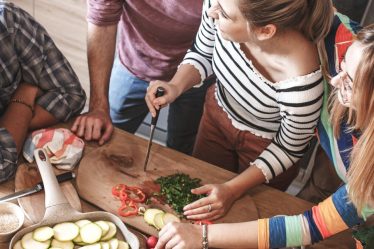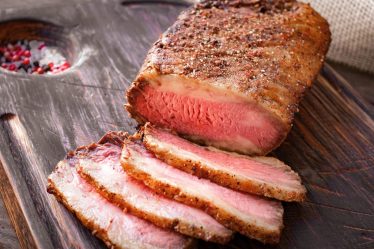
Introduction
Food has always been central to how we live, celebrate, and connect. But in 2025, eating is no longer just about flavor—it’s about identity, sustainability, technology, and well-being. From AI-powered recipes to cultural food revivals on TikTok, the way we experience food is evolving fast. Whether you’re a home cook, a foodie, or a wellness enthusiast, understanding modern food trends can change not just how you eat—but how you live.
The AI Kitchen Revolution
Artificial intelligence is now a sous-chef in millions of homes. Platforms like ChatGPT and Whisk help users create personalized meal plans based on their dietary needs, fridge inventory, or favorite cuisines. AI-generated recipes can suggest replacements, calculate calories, and even adjust for portion size or cost.
This democratizes cooking knowledge, helping more people eat better with less stress. And for experimental cooks, AI is also an endless source of fresh culinary inspiration.
TikTok and the Rise of Viral Food Culture
Social media, especially TikTok and Instagram Reels, has turned ordinary home cooks into global influencers. From butter boards to baked oats to ramen lasagna, food trends are born and spread in seconds. These platforms have also helped spotlight traditional and regional dishes that once rarely reached mainstream audiences.
It’s not just about going viral—these food movements are reviving lost recipes, cultural pride, and new twists on comfort foods across generations.
Sustainable Eating as a Lifestyle
More consumers are now asking: Where does my food come from, and how does it affect the planet? Sustainable eating has gone from niche to necessity. This includes:
- Plant-based diets: Not just for vegans—flexitarians and “reducetarians” are rising.
- Locally sourced produce: Farm-to-table is now farm-to-fridge for many.
- Upcycled ingredients: Brands are repurposing food waste into healthy snacks.
People are no longer just eating for taste—they’re eating for impact.
Food as Fuel for Body and Mind
The connection between nutrition and mental health is finally mainstream. Functional foods—like adaptogenic mushrooms, collagen drinks, and gut-friendly kombucha—are trending because they support energy, focus, and emotional balance.
Meanwhile, tech-powered apps like MyFitnessPal or ZOE use microbiome data and glucose monitoring to help users make smarter, more personalized choices.
This is the new wellness: food that feeds your whole self.
Cultural Roots and Culinary Storytelling
Food is heritage, and people are reconnecting with it more than ever. Whether it’s Gen Z rediscovering their grandparents’ recipes or immigrant chefs turning home-cooked meals into six-figure businesses, storytelling through food is powerful.
Pop-ups, food documentaries, and cookbooks from underrepresented voices are helping bridge cultural gaps, preserve traditions, and celebrate global diversity through flavor.
Conclusion
Food in 2025 is a sensory, cultural, and technological experience. It’s not just about what we eat—it’s about why we eat, how we eat, and who we eat with. From AI-assisted recipes to sustainability-driven diets, modern food culture reflects a deeper hunger for connection, meaning, and change. So next time you sit down for a meal, know this: you’re not just feeding your body—you’re participating in a global conversation.


